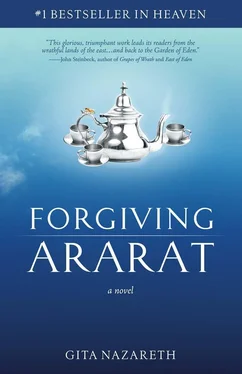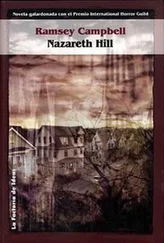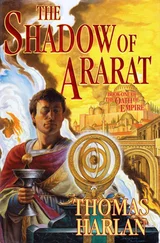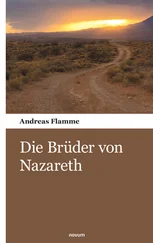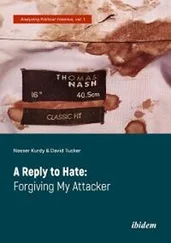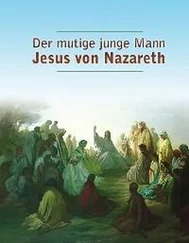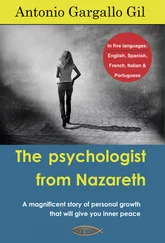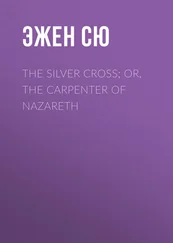“The choices Yahweh promised Noah we would make,” Luas replied, gripping the pipe between his teeth and talking between them. He was obviously obsessed with Noah and the Great Flood; all his metaphors eventually began and ended there.
“Did you get here by drowning?” I asked with a smirk.
“No. I was decapitated, actually. See-”
Luas’ head, with the pipe still clenched in its teeth, rolled right off his neck and onto the desk, as if the blade of a guillotine had dropped out of the ceiling and chopped it off. A gush of blood shot up between his shoulders like a small fountain. I jumped back and screamed. Having made his point, his arms retrieved his head from the desk and put it back where it belonged.
“Sorry to startle you,” he said coyly, “but you did ask.”
“Don’t ever do that again!” I said. “How did it happen? I mean, how were you decapitated? Were you in an accident?”
Luas puffed thoughtfully on his pipe. “One must begin at the beginning to answer such a question. Why did Yahweh promise not to destroy the earth after having just destroyed it?”
Like I said, obsessed. “I think we went all through this when I got here,” I reminded him.
“Did we…? Oh, yes, you’re right. Sorry. I’ve confused you with one of the other new presenters. Let’s pick up where we left off, then. What if Noah had disobeyed?”
“Already asked and answered, your honor,” I said impatiently.
“He’d have been killed with the others. The price of disobedience was exceptionally high, don’t you think?”
“Well, the death penalty is the ultimate punishment,” I said. I was in a very snitty mood. I wanted him to know I was upset.
“But this was the ultimate death penalty, Brek. Not only Noah’s life but his family’s and the entire human race. The animal kingdom as well. Disobedience meant the end of everything, not just the end of Noah. The stakes could not have been higher.”
“You’re all about choices,” I said. “What choice did Noah have? Build an ark or everything dies? People make him out to be some kind of hero doing God’s bidding. He had the biggest gun in the world pressed against his head; who wouldn’t build an ark? He was just doing what anybody else would have done to save their own neck.”
Luas put his pipe in an ashtray on his desk and got up.
“Precisely. Now, how shall we present Ms. Rabun?”
“Precisely what ?” I said.
“What’s the first thing Noah did after the Flood?”
“Towel off?”
“He made a burnt offering.”
“That’s what the Bible says.”
“Why make a burnt offering?”
“To give God thanks.”
Luas began pacing the small room. “Correct, and what was it worth, this offering?”
“I guess what all offerings are worth.”
“Really?” Luas said. “This man, Noah, had just witnessed the mass murder of millions of people and animals. As you said about building the ark under threat, who wouldn’t have been grateful for having been spared after all that? But look at it from God’s perspective, Brek. What did God really want in all this?”
“Love, I guess. Love, respect, the same things everybody wants.”
“Precisely. Now, is that what billowed up from Noah’s burnt offering? Love? Or was it the stench of fear? The fear of instant death and annihilation-”
“But-”
“Throughout history, the tendency has always been to read Genesis from mankind’s perspective, from the perspective of the accused: man’s fall, man’s destruction, one man’s obedience, one man’s deliverance, one man’s thanksgiving, mankind’s guaranteed survival. Perhaps the story is told not so we understand better the condition of man, which we know all too well; perhaps it is told so we understand better the condition of God . Noah built the ark because the price of disobedience was intolerable and later praised God to appease God, not out of love for God. Not that we should criticize Noah…he did exactly what was his to do. But if we look more closely, we see that it was divinity itself, entangled in the greatest of all ironies, that cheapened the gesture and desecrated both the obedience and the sacrifice. The story of Noah is the story of God’s need for man, Brek, not man’s need for God. It also explains why, because of that divine need, the possibility of evil must be permitted to exist for there to be any possibility of love; it explains why a serpent inhabited the Garden at the beginning of time, and why it will continue to coil around our feet until the end of the age.”
“I don’t understand,” I said.
“Look,” Luas said. “What changed in those forty days was the very essence of God’s relationship to man, not man’s relationship to God. God changed His ways; we didn’t change ours. Yahweh recognized the problem instantly, the moment the waters receded and the sacrificial fire was lit. By punishing man for disobeying and turning away, the Flood had destroyed love itself. For true love to exist, the option not to love-without compulsion-must also exist. When love is demanded and extorted, it becomes fear, and fear is the opposite of love. So, Yahweh had a choice : He could accept the possibility of sin to achieve the greater prize of love, or He could endure the false praises of creatures too terrified to do anything else. He chose the former, gifting to humanity the freedom to choose. So critical is our understanding of this act that Yahweh selected the refraction of sunlight into the many colors of a rainbow as the eternal symbol of our freedom to follow many different paths. No matter how far we may stray, no matter how much it hurts-God or us.”
Luas returned to his chair behind the desk.
“Amina Rabun is an heir to that promise, Brek. But that promise is both a gift and a curse. With the freedom to choose comes the responsibility for one’s choices. The Urartu Chamber is the place where those choices and responsibilities are reckoned. So, I ask you again: How shall we present the case of Amina Rabun?”
Elymas sits on the rocking chair in Sarah’s room, pushing himself back and forth with his cane against the corner of her crib. I have made my decision: I must see them again. The toothless smile appears when he hears me enter. I’m here to see my husband and daughter, but it feels shady, like a drug deal.
“Shall I take you?” Elymas asks.
“Yes.”
His eyes widen and I disappear into them. I emerge this time in a quiet country cemetery on a sloping hillside bent in prayer against the wooded pew of Bald Eagle Mountain. I have been here several times before. This is the cemetery near my grandfather’s farm where the Cuttlers bury their dead. It is a pretty place. And sad. The sun this day burns warm and bright, but the graves do not taste the sun or feel its heat. A requiem of red oak trees enshrouds those who sleep here, denying them any sense of the dazzling display of fusion at work in the heavens above. Maybe it is not so dazzling after all: a paper-thin membrane of chlorophyll in the tree leaves demonstrates the easy dominance of darkness over light; but the shadows moving beneath the leaves appear to be of a different darkness and a different light; they flicker over and around the stones and dance across the grass without relation to the sway of the trees. A warm breeze stirs the memorial flags; the shadows examine them and retreat, satisfied with the crisp red, white, and blue fabric fixed with staples not yet rusted into shafts of blond wood not yet weathered.
At the end of a row of well-kept plots without flags kneels a man in his fifties. His hair is thinning and his middle thickening. He resembles Bo’s father, Aaron, when I was first introduced to him, pulling weeds from the garden behind their house. The man in the cemetery hears me rustle through the grass and rises to his feet. In his right hand he holds a small silver tea cup, in his left, a black yarmulke. The cup falls when he sees me, crashing onto a sterling silver tray placed at the base of a small, granite gravestone. I cannot see the name. The collision knocks over a silver teapot and two other cups, spilling their contents.
Читать дальше
